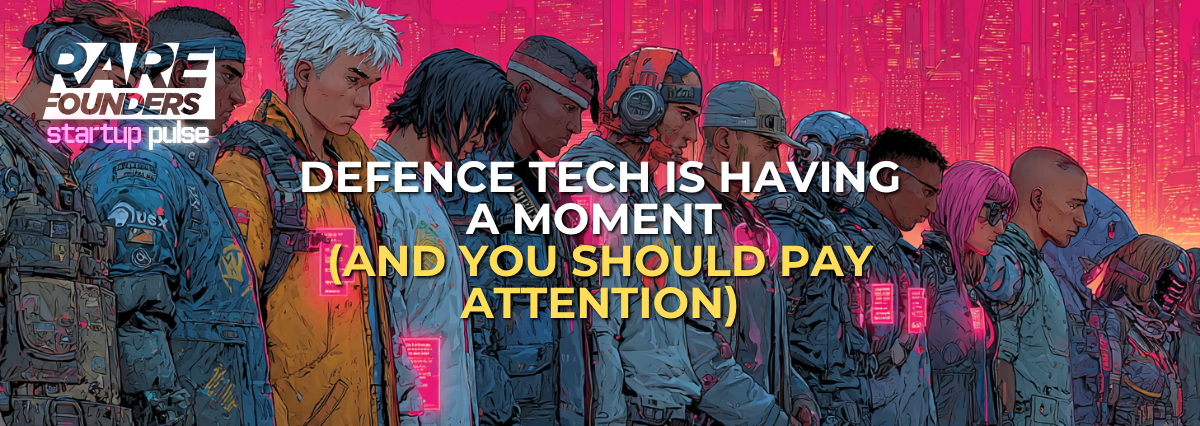Why You Should (Or Shouldn’t) Raise from Corporate Venture Funds
Everyone talks about angels and VCs. But what about the big elephants in the room — the corporates?
Corporate Venture Funds (CVCs) are the investment arms of large companies like Google (GV), Salesforce (Salesforce Ventures), or Unilever (Unilever Ventures). Some are well-known. Others fly under the radar. But together, they manage hundreds of billions in dry powder — and unlike many traditional VCs, they don’t always care about 10x returns.
They care about relevance. Strategic advantage. The future of their business.
If you’re a founder who knows how to play this game, it can be a huge unlock.
But fair warning: it’s a very different game.
🧠 How CVCs Actually Work
First, understand the internal politics.
Most CVCs fall into 3 buckets:
Financial-return focused (like a regular VC)
These are run more independently. They might report to the CFO or CEO. Example: GV (Google’s fund), Sapphire Ventures.
Strategic-focused
These funds invest where they see long-term commercial synergies. Often report to innovation or corp dev teams. Example: Intel Capital, which often leads to future acquisitions.
Hybrid
A mix of both — they’ll invest with strategic alignment, but returns still matter. Example: Salesforce Ventures — where the end goal is often product ecosystem expansion.
This matters, because it affects how decisions are made. A financial CVC might behave like any other VC. A strategic one? You might need a business unit sponsor, not just an investment memo.
✅ When CVCs Make Sense
CVCs work best when you’re building something they could actually use — or sell, or license, or one day acquire.
You should consider approaching CVCs if:
Your product complements theirs (e.g. building an AI tool for customer service → talk to Zendesk’s fund).
You’re targeting their customer base or industry.
You’ve already got traction with their company — a pilot, a partnership, even a warm intro.
A few good outcomes founders have seen:
Pilot → Investment → Acquisition.
Common in HealthTech, Fintech, and Enterprise SaaS.
Distribution deals.
CVCs can get you on their marketplace or inside their customer ecosystem.
Credibility boost.
Having a big name on your cap table opens a lot of doors — customers, future investors, talent.
❌ When It’s Probably Not Worth It
Some founders chase CVCs for the name or hope of fast money. Mistake.
Here’s when you should not waste your time:
You’re pre-product and just fundraising on hype. CVCs are risk-averse.
You’re in a space they clearly don’t play in — and you’ve done no homework.
You need a fast cheque. They move painfully slow.
You don’t understand their org. If you can’t point to who in their business would benefit from what you’re building, they won’t either.
Also: watch for red flags.
Some CVCs might ask for exclusivity, “right of first refusal,” or lock you into commercial terms that could kill future growth. Don’t sign anything without legal advice.
💡 How to Build the Relationship
Here’s what actually works — not theory, real-world tactics:
Start from the business unit, not the fund.
If you’re building a payments API, don’t just pitch Mastercard Ventures — find someone in product or innovation at Mastercard who gets the value.
Use pilots as proof.
If you can land a small commercial partnership, even a sandbox trial, it massively strengthens your position. Their CVC team will take it more seriously.
Follow the breadcrumbs.
Many CVCs publish investment theses or blog posts. Read them. Quote them in your outreach. Make your pitch easy to say yes to.
Go warm if possible.
Ask your existing investors if they know anyone on their LP list or commercial partners — many corporates invest in funds that back you.
Be transparent.
Tell them if you’re also talking to competitors. It’s better to be upfront than get caught in politics later.
🚀 Final Thought
If you’re building something bold, niche, and B2B — CVCs can be a power move. They’re slow but mighty. Get them on board, and you’re not just getting money — you’re getting distribution, credibility, and long-term exit options.
But if you’re just looking for speed or don’t align with their roadmap, skip it. There are faster ways to die than getting stuck in a 6-month due diligence loop with a corporate who ghosts you.
Want to know which CVCs are active right now — and how to reach them?
👉 Subscribe to our paid newsletter.
We’ve got a full database of CVCs, sorted by sector, stage, and strategic priorities. Saves you hours of digging and helps you avoid wasting time on the wrong ones.
Because in this game, who you pitch matters just as much as how you pitch.
We’ve curated a living database of active CVCs and a wider investor network across the UK and globally. It’s growing every single month.
What’s inside:
🧑🚀 2,400+ angel investors, including 371 in the UK
🏦 2,600+ funds, with 439 UK-based
🚀 3,000+ VC firms, accelerators, and corporate VCs (955 in the UK)
🔄 500 new contacts added every month
👉 Check out our list of CVCs and start reaching out today.
This is a quick preview on what we have on CVCs in our database for you. Subscribe here to get access to all the data we have manually collected and verified so you don’t have to.
Rare Founders - building the bridge between founders and investors via regular in-person and online events, meetups, conferences.








